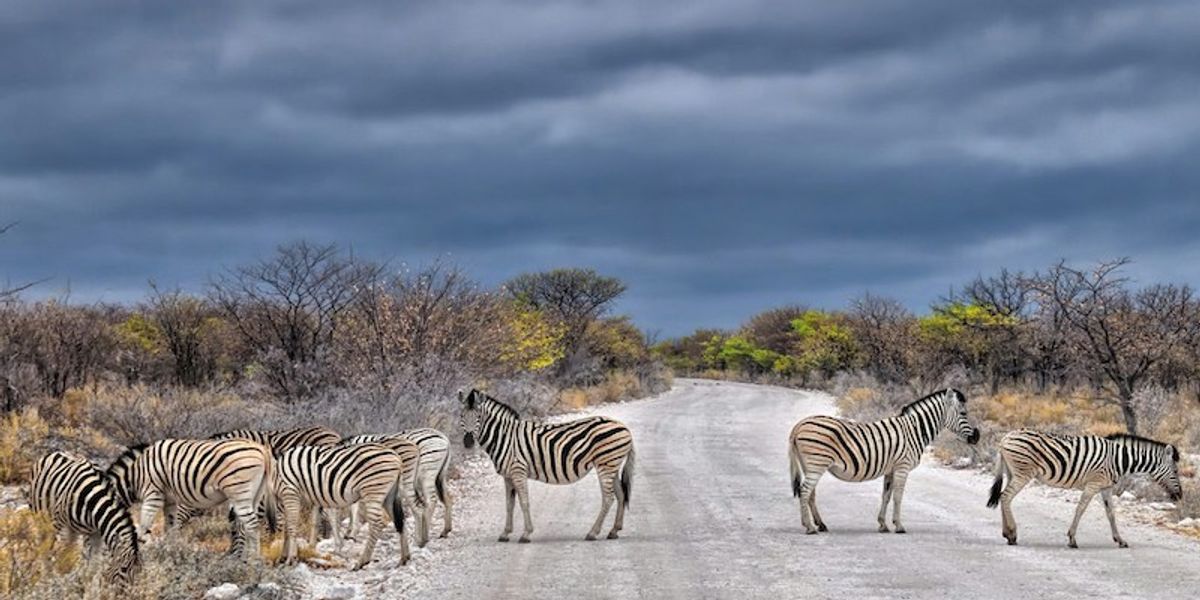Africa is set for a rise in travel over the next decade, with the population growing at 2.7% per year, faster than any other continent.
By 2030, Africa’s population is expected to surpass China and India, reaching 1.72 billion people; 447 million will be between 15 and 35 years of age. The continent will have the world’s largest workforce, with more than 600 million working-age people. But is the online travel market keeping up with Africa’s potential?
Africa’s online travel and tourism sector is still developing. Travel companies and investors face unique hurdles in the continent’s digital travel ecosystem.
“We see massive opportunities to improve digital discovery functions, digital booking systems, procurement, energy consumption and even artificial intelligence, though there’s a data shortage right now,” said Ben Peterson, CEO of venture studio Purple Elephant Ventures.
A B2B marketplace aiming for B2C
Across Africa, both B2B and B2C travel companies are popping up, but the B2B segment is gaining more traction.
“Travel generally is heavily driven by B2B bookings — so governments, corporates. A lot of our work right now is focused on helping small companies form B2B products,” said David Gonahasa, founder of Tripesa.
Peterson believes it is essential to address both segments, but also sees mainly B2B opportunities.
“We’ve built five businesses, four of which are B2B and one is B2C. The B2B side holds the lowest hanging fruit right now,” he said.
While B2C businesses exist, the infrastructure to support widespread consumer adoption is still developing, and it can be difficult for startups to scale quickly.
“The approach that works in the West, where you build a marketplace and do lots of marketing is not really working here. We must innovate new ways to do it,” Gonahasa said.
Tripesa has managed to grow by adapting and applying new technologies. According to Gonahasa, being an Amadeus technology partner has helped by giving small businesses additional inventory they wouldn’t usually have access to, such as flights, hotels and cruises, to sell.
“We’re using AI to help these small businesses drive lead generation and manage customer relationships, which is where we’ve seen real growth come in,” he said.
Funding challenges
For African online travel startups, finding funding can be difficult with many investors just not caring about tourism, according to Gonahasa.
“What they care about is the fintech side of things. It takes a lot more work to convince them to understand the opportunity in tourism.”
He has been successful in positioning Tripesa as fintech.
“Tourism is one of the largest foreign exchange earners for Africa. By digitizing and integrating the industry, we’re able to move a lot of FX and provide ancillary fintech services like forex conversions and payouts,” he said.
Subscribe to our newsletter below
Jonathan Coleman, CEO of Untours and Untours Foundation, which focuses on impact investing, said that while investors acknowledge the “immense opportunity” in Africa, the overall investment climate remains challenging.
“Capital is not flowing enough into tech-based startups or traditional operators that need funding to scale.”
Untours Foundation tries to fill the gap by funding online travel companies like Purple Elephant and Zafari, an online platform aimed at helping independently owned lodges and hotels in Africa avoid the high fees charged by global intermediaries.
“We’re an impact-driven investor, focused on maximizing community and environmental impact, not just dollar returns. If we’re looking at sustainable economic development, we’d like more of that money to stay with local ownership,” he said.
Coleman also said under-investment remains in places like Nairobi “but even more outside of it.”
“There’s huge amounts of opportunity, but not enough capital flowing into tech-based startups and traditional tourism operators,” he said.
Peterson agreed and said the venture markets in Africa have collapsed, as they have in other parts of the world.
“It’s probably the hardest time for any tech-related or venture capital-related business to raise money in the last decade. When we first started Purple Elephant Ventures, there were less than five travel startups that had raised more than $100,000. We’re still in the nascent stage of building this industry,” he said.
Building infrastructure and trust
And, according to Gonahasa, the biggest challenge is that travel and tourism across Africa is not “digitized.”
“The only way to do it is helping the small guys figure out how to and give them enough potential business to make it viable. No one really owns the online space yet, so you find that it’s very fragmented in terms of who is driving traffic,” he said.
There are many mobile phones, but how many are high-quality smartphones with the right screen sizes? Travel is a very emotional process, and people often need bigger screens to fully engage and make decisions.
David Gonahasa
Infrastructure is still developing, particularly around data access. By 2030, there will be more than one billion mobile internet users in Africa, but while mobile is important, Gonahasa pointed out that mobile-first isn’t ideal for online travel.
“Yes, there are many mobile phones, but how many are smartphones? How many are high-quality smartphones with the right screen sizes? Travel is a very emotional process, and people often need bigger screens to fully engage and make decisions,” he said.
“In many ways, you have to build functional web interfaces for small businesses and then gradually build out mobile approaches. We’re doing that now – every site we produce is frame-worked to be responsive, and we’re also looking at white-label apps that agents can use for additional parts of their business,” he said.
Another critical challenge is trust. Gonahasa said that while many think price is the biggest driver, it’s actually more about trust in Africa.
“Acquiring the trust needed to drive sales is very expensive,” he said.
Despite the challenges, there are significant benefits to starting a travel company in Africa.
“This is a big continent with relatively low operating costs, but African startups are valued by global markets, making it easier to drive returns for investors,” Peterson said.
South Africa, Kenya and Morocco are traditional tourism destinations that attract the most international visitors. Still, interest is growing in creating more startup opportunities to cater to African travelers.
Coleman believes there’s huge opportunity for growth in intra-country and intercontinental travel too and not just for foreign travelers coming in. Meanwhile, Gonahasa also believes there is an opportunity to foster travel within Africa.
“How do you start to create more inter-Africa travel and domestic travel? That’s what we’re really working towards as a business. We want to unlock that market,” he said. The experts we spoke to agree that the African online travel market is ripe for innovation. “Less than 20% of the whole travel industry is digitized, so it’s a huge opportunity. It’s just about figuring out the right way to do it,” he said.









